Introduction: In this article, Jane Hampton Cook describes the publishing of “Common Sense,” Thomas Paine’s incredibly popular pamphlet that helped persuade Americans to support the American Revolution. Jane is a presidential historian and author of ten books, including Stories of Faith and Courage from the Revolutionary War. Her works can be found at Janecook.com. She is also the host of Red, White, Blue and You.
The editor of the Pennsylvania Evening Post was discouraged as the New Year began in 1776. After all, the world had gone mad in 1775 when the first shots of the American Revolution were fired at Lexington and Concord, Massachusetts.
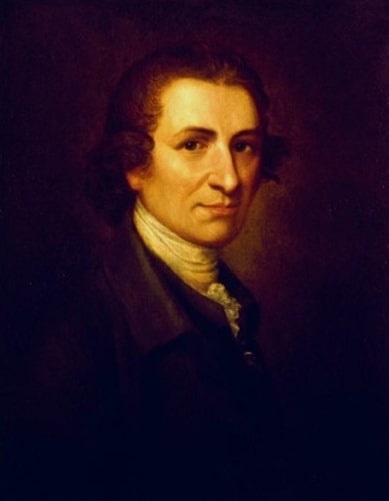
In response to the madness, the editor published a poem on 1 January 1776 under this theme:
“But now, alas! Poor Tom’s a-cold.”
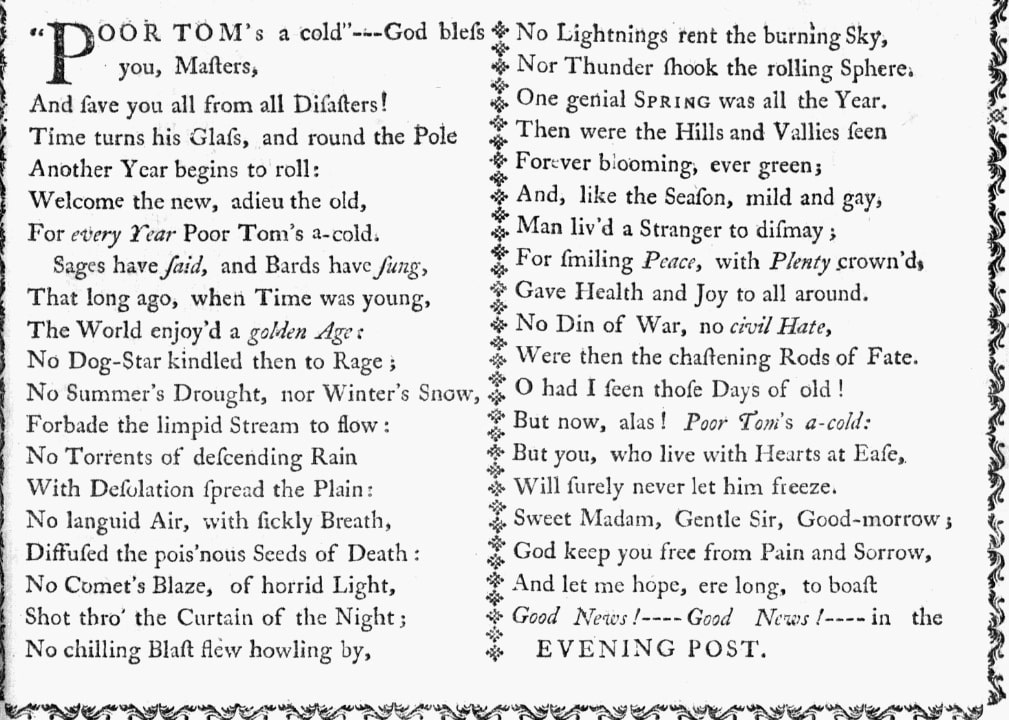
“Poor Tom’s a-cold” refers to Shakespeare’s King Lear, in which a character disguised himself as Tom O’Bedlam to symbolize madness – a storm indicating chaos in the social world.
In spite of his world gone mad, the editor’s New Year’s Day poem concluded with hope for good news in 1776:
“But now, alas! Poor Tom’s a-cold:
But you, who live with Hearts at Ease,
Will surely never let him freeze.
Sweet Madam, Gentle Sir, Good morrow;
God keep you free from Pain and Sorrow,
And let me hope, ere long, to boast
Good news! —- Good news! —- in the Evening Post.”
This editor didn’t let Tom freeze – and his paper was soon to publish “good news.” In fact, he promoted an anonymous work by a real-life Tom.
The Pennsylvania Evening Post announced “Common Sense, addressed to the inhabitants of America, on the following interesting subjects” on 13 January 1776, four days after it was first printed by local publisher Robert Bell. It was published anonymously – Thomas Paine originally didn’t want his name on the radical, 47-page pamphlet that became wildly popular and helped turn American attitudes toward Great Britain from reconciliation to rebellion.
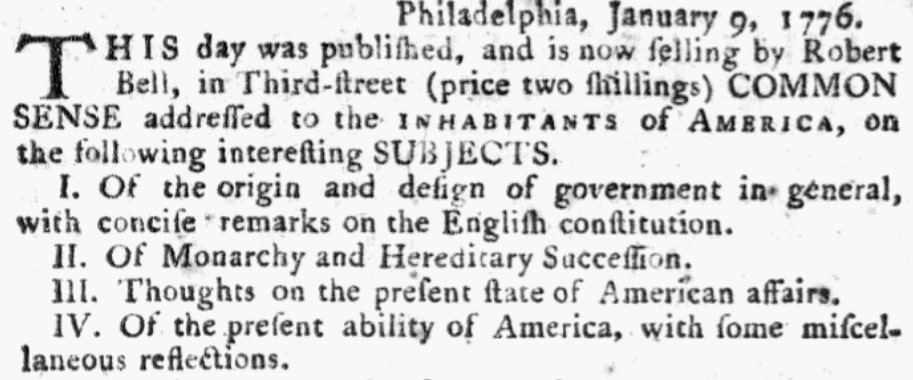
Common Sense addressed the origin of government, the English Constitution, monarchy, hereditary succession, and the present state of America. In an appendix to Common Sense, Thomas Paine wrote what could be the boldest New Year’s resolution for America ever uttered:
“We have it in our power to begin the world over again.”

His Common Sense was so popular that soon the New-York Gazette, and Weekly Mercury announced that a publisher in New York was also printing and selling it.
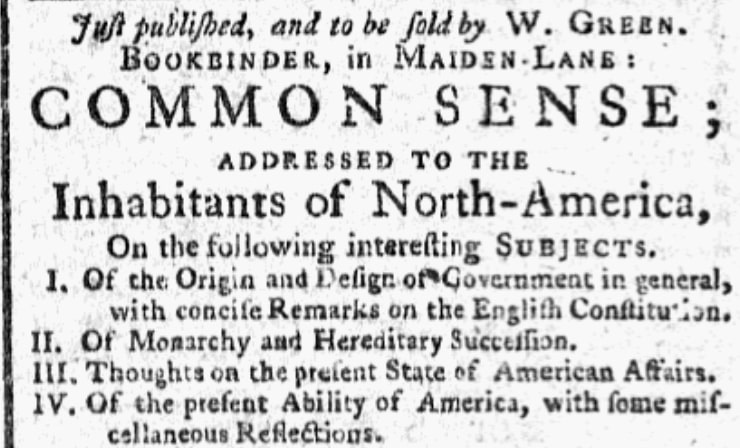
For safety reasons, Thomas Paine’s name as the author was kept out of the press for years. Paine had recently come to America from England. The Pennsylvania Evening Press gave an update on January 25 on the (still anonymous) pamphlet’s astonishing popularity, reporting:
“Several hundreds are already bespoke, one thousand for Virginia. A German edition is likewise in the press.”
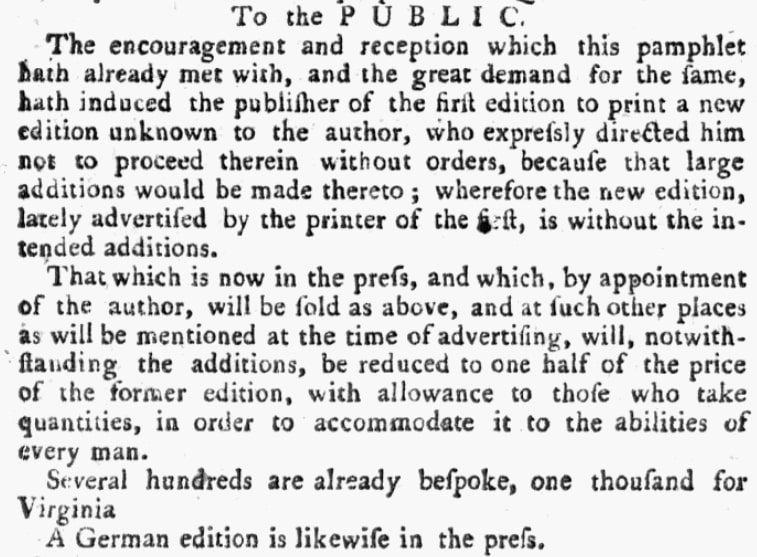
In tomorrow’s concluding Part II of this article, we’ll see how readers reacted to Common Sense, and how it played such an important role in spurring the Colonies to embrace revolution.
Note: An online collection of newspapers, such as GenealogyBank’s Historical Newspaper Archives, is not only a great way to learn about the lives of your ancestors – the old newspaper articles also help you understand American history and the times your ancestors lived in, and the news they talked about and read in their local papers.
